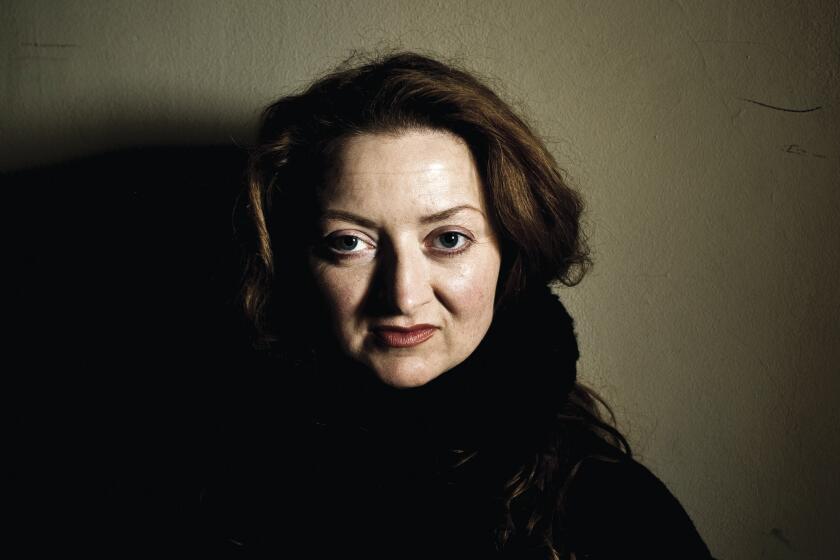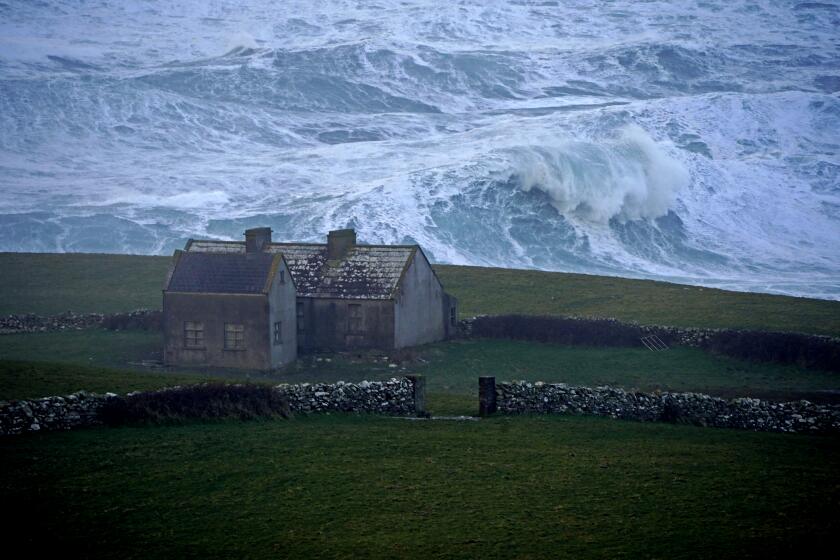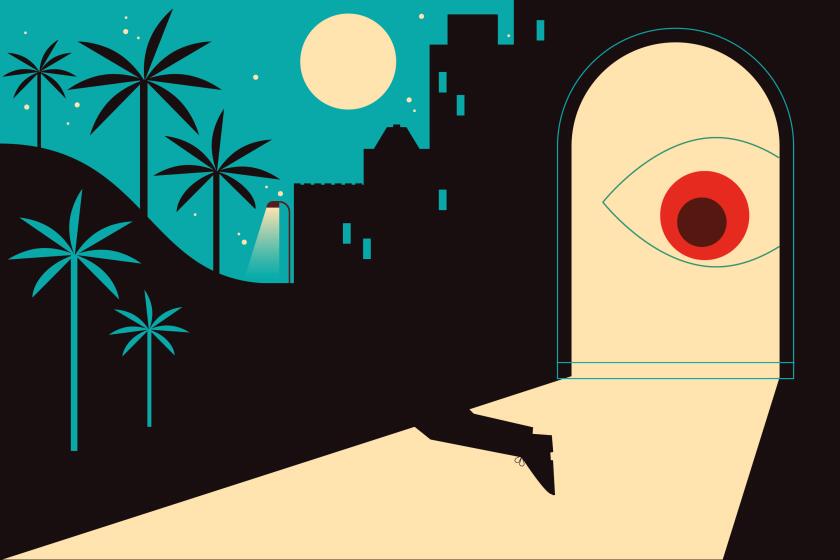How the Wild West inspired one of Ireland’s top experimental novelists
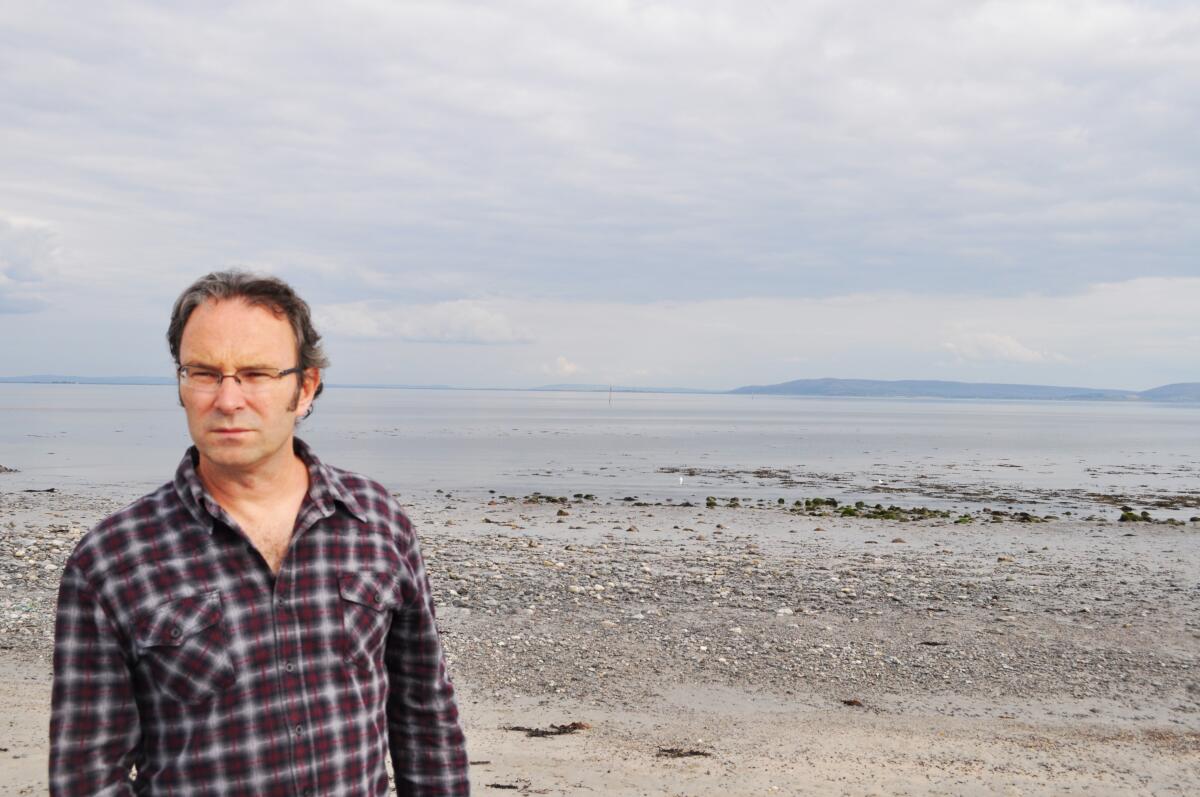
- Share via
On the Shelf
This Plague of Souls
By Mike McCormack
Soho: 192 pages, $27
If you buy books linked on our site, The Times may earn a commission from Bookshop.org, whose fees support independent bookstores.
Mike McCormack lives in Galway, Ireland, on a seacoast facing the Atlantic with rocky, unforgiving cliffs that give way to thin, hardpan soil. As the author describes it, the western edge of Europe sounds a bit like the American West.
“This is a fishing village, very beautiful and very rough around the edges,” McCormack says via videoconference. “For all our kind of arty-ness and urban polish and everything like that, there is still this rough hinterland very close. Being in the west, we like to see ourselves as wild and untamed and untamable.”
McCormack’s 2017 novel, “Solar Bones,” was longlisted for the Booker Prize. In his new one, “This Plague of Souls” — set, like its predecessor, in western Ireland — a man named Nealon returns home from a prison to find his wife and child gone, their house stripped down to its bare bones. His mobile rings: a call from an anonymous man. Nealon has to act, but he’s completely alone in the world. What comes next?
For 20 years, Claire Keegan has been changing how we read and publish short stories. Her new book, ‘So Late in the Day,’ affirms what makes her great
“It’s difficult to impress upon anyone how important the idea of cowboys was to my father’s generation,” says McCormack. “Those solitary, strong, square-jawed men who rode tall in the saddle and had codes of honor and all that.” His father’s library of such books — by Louis L’Amour, Jack Schaefer, Zane Gray — heavily influenced McCormack’s imagination. “By the time I was 12 or so, I was more familiar with the Mojave Desert than with various parts of Ireland.”
It should be noted that McCormack is not by any means a writer of westerns; his work is much harder to categorize. “Solar Bones” was touted for consisting of a single sentence — although McCormack says it’s actually “a few clauses, in a sentence that has begun long before you open the book, and goes on long after you close the book.” “This Plague of Souls” is tightly structured, with elements of noir. “Notes from a Coma” (2005) could be considered sci-fi.
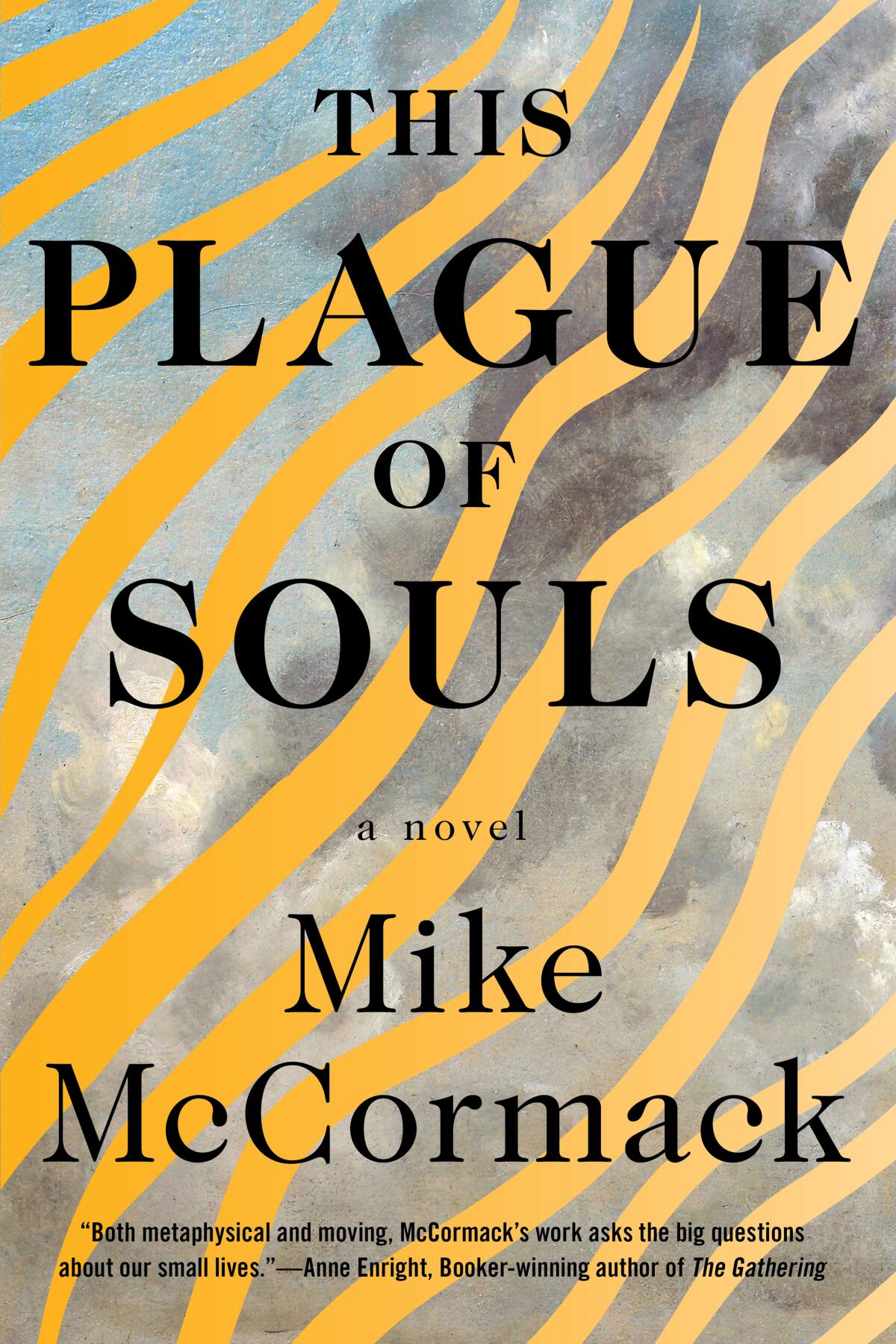
Yet McCormack’s affinity for the Old West comes through in both his subjects as well as his style. After recently rereading L’Amour’s “Matagorda,” he says, “I see why I was so enamored of it as a child, especially in his treatment of landscape and how people relate to [it]. It taught me, decades ago, that landscape isn’t just background scenery. It affects and inflects characters.”
Writing in any particular mode is, for McCormack, “an act of gratitude, an acknowledgment that these books and these genres are things of real refinement and polish.” Yet his novels don’t originate from a notion of a genre, but rather from a specific image. “Solar Bones,” for example, “began with a mental picture of Marcus Conway blundering around his kitchen in the middle of the day. Why was he confused? Why was he at home in the middle of the day?”
That novel became an unbroken reminiscence, but at the start of the process, “I only care about the things that are there in front of me. I want the book to raise a vivid image in the reader’s mind, but also to leave a whole series of questions.”
Colin Barrett’s second collection, ‘Homesickness,’ expands the reach of this mordantly funny Irishman beyond the small-town millennials of his debut.
At 58, McCormack is not as well known as his Irish contemporaries — Anne Enright, Colm Toíbín — in part, he believes, because they traffic in literary realism. He says that’s begun to change for the next generation.
“The recent resurgence of experimental writing, great examples would be Eimear McBride and Kevin Barry, has been much to my benefit,” he says. “When I started publishing in the 1990s I found myself at odds with what people were reading, with what they admired. I loved the Thomas Pynchon of the 1970s, J.G. Ballard, Donald Barthelme, John Barth. Their work had ludic elements and they were kind of crazed, and I was indebted to that experimental idea.”
After his first experimental novel, which received good reviews, “dropped off the side of a cliff,” McCormack found that younger publishers were receptive to his ideas. “Two women in their early 30s, who founded Tramp Press in Dublin, jumped on ‘Solar Bones,’ and their willingness to champion it was everything.” He decided to go back to another book he’d begun around the same time as that novel.
“When I first started working on ‘This Plague of Souls,’ it was 2012, and I was still very close to myself as a younger man who sat around in rooms playing video games with people — mainly those types of games where you have to walk around in houses and open doors and such.” Several months ago, he gave a public reading from “Plague’s” opening, “and a woman came up to me and said, that’s a video game.”
He realized she was right: “I was actually seeing if a video game could show me something about a novel.” “This Plague of Souls” progresses through three movements set in three distinct places. “They’re demarcated environments — the house, the car, the hotel lobby. Although I love American noir, I was aiming more for European noir, the very tightly written sort — [Georges] Simenon and Andrea Camilleri and Fred Vargas.”
David L. Ulin had the idea for his pitch-dark new L.A. noir novel, ‘Thirteen Question Method,’ decades ago. But to write it, he had to live it first
Ultimately, McCormack decided to write a book he couldn’t entirely explain. “I can tell you everything that happens within the 170 pages you have in your hand, but there’s a lot of background stuff I don’t know about,” he says. “My starting point is full of strictures, in one sense. But it’s full of open exploration, in another.”
Although the protagonists of his two latest novels are not otherwise connected, McCormack realized that both opening scenes contain men alone in kitchens with bells going off — for Conway, the midday Angelus; for Nealon, the ring of his phone. Readers will be curious about the opening scene of the next book, the third in what’s becoming a very loose trilogy — though he prefers the word “triptych.” He’ll be curious too, because he hasn’t started it yet.
“Like ‘Solar Bones’ and ‘This Plague of Souls,’ it will center around the idea of men building worlds,” he says. “That is the thematic link.” It may well began with a man in the kitchen and a bell. Aside from that, however, the inciting image — and the particular melange of styles, genres and experiments that will come into play — are to be determined. It’s unlikely to be a western, but McCormack isn’t ruling one out in the future.
Patrick is a freelance critic, podcaster and author of the memoir “Life B.”
More to Read
Sign up for our Book Club newsletter
Get the latest news, events and more from the Los Angeles Times Book Club, and help us get L.A. reading and talking.
You may occasionally receive promotional content from the Los Angeles Times.
